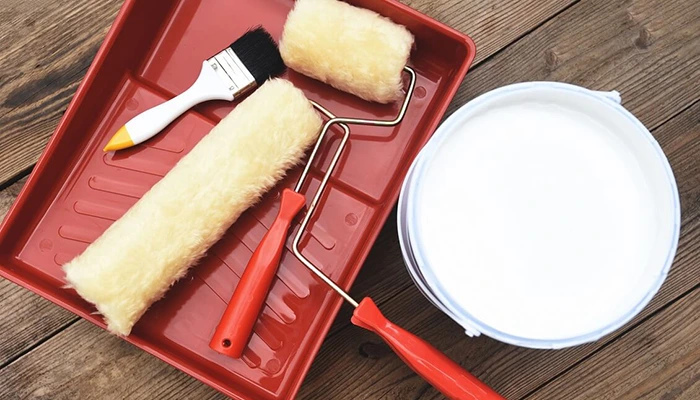Water based resins
Due to global restrictions on the use of volatile organic solvents, there has been increased attention toward products and technologies that reduce solvent consumption. Coatings typically consist of four fundamental components: resin, solvent, pigment, and additives. Among these, the primary component is the resin or binder.
Advantages of Water-Based Resins:
- Cost-Effective: Water-based resins offer a cost-effective alternative due to their affordability.
- Non-Toxic: These resins are non-toxic, making them safer for both workers and the environment.
- Environmental Compatibility: Water-based resins are highly compatible with the environment, making them an excellent choice for sustainable production.
- Efficiency Boost: Water enhances many chemical reactions, leading to increased efficiency. As a result, water is increasingly replacing organic solvents as a solvent in resin production.
Now, let’s delve into the most commonly used water-based resins:
Water-Based Acrylic Resin
Water-based acrylic resin stands out as the most widely produced and consumed type among water-based resins. Its production process involves emulsification through polymerization in an aqueous medium, utilizing an initiator. The primary monomers used in synthesizing water-based acrylic resins are acrylate and methacrylate.
Key Features of Water-Based Acrylic Resin:
- Thermal and Chemical Stability: This resin exhibits excellent stability under varying temperatures and chemical conditions.
- Corrosion Resistance: Water-based acrylic resin provides effective protection against corrosion, making it ideal for various applications.
- Water Resistance: Its inherent water resistance ensures durability even in damp or wet environments.
Applications of Water-Based Acrylic Resin:
- Interior and Exterior Wall Paint: Water-based acrylic resin is commonly used in formulating high-quality wall paints for both indoor and outdoor surfaces.
- Wood Paint: It finds application in wood coatings, enhancing wood’s appearance while providing protective properties.
- Plastic Paint: Water-based acrylic resin contributes to durable and vibrant plastic coatings.
- Anti-Corrosion Industrial Paints: Industries rely on this resin for protective coatings on metal surfaces, guarding against corrosion.
- Coil Coating: Water-based acrylic resin is also used in coil coating processes, ensuring long-lasting performance.
Water-Based Alkyd Resin
Water-based alkyd resins are typically conventional alkyd resins—polyesters based on saturated or unsaturated oils, fatty acids, and alcohols—that have been modified for water miscibility. Common components in these resins include vegetable oils or fatty acids such as linseed, soybean, castor, dehydrated castor, safflower, coconut, and tall oil.
Key Components:
- Acids: Isophthalic, terephthalic, adipic, benzoic, succinic, phthalic, maleic, and trimellitic anhydrides.
- Polyols: Glycerol, pentaerythritol, trimethylol propane, ethylene glycol, propylene glycol, diethylene glycol, neopentyl glycol, 1,6-hexane DL, and 1,4-butane DL.
Methods for Water Miscibility: Common techniques for achieving different degrees of water miscibility are similar to those used in other resin systems. These methods involve introducing hydrophilic centers, such as acidic groups, which can then be neutralized to form salts. Another approach is to create polar groups within the resin matrix, enhancing its compatibility with water.
Features and Applications: Water-based alkyd resins find application as structural coatings due to their impressive resistance to weather changes and corrosion. They are commonly used in protective coatings for various surfaces.
Water-Based Saturated Polyester Resin
Water-based saturated polyester resin is a non-oxidizable type of resin that can be crosslinked with conventional melamine resins and urea formaldehyde. The production process involves condensation polymerization of two-factor acids and bases, resulting in salt formation in water.
Key Properties:
- Non-Yellowing: Even at high cooking temperatures, this resin remains resistant to yellowing.
- Appropriate Hardness: It exhibits the right balance of hardness for various applications.
- Good Chemical Resistance: Water-based saturated polyester resin withstands exposure to chemicals.
- High Film Resistance: It provides excellent resistance against weather corrosion, ensuring durability.
- Metal Adhesion: The resin adheres well to metal surfaces.
Applications of Water-Based Saturated Polyester Resin:
- Coil Coatings: Used for covering coils, providing protection and enhancing their performance.
- Amine Dyes: This resin is compatible with amine-based dyes.
- Metal Primers: It serves as a primer for metal surfaces, promoting adhesion and corrosion resistance.

Water-based epoxy resins
Water-based epoxy resins are two-component coatings that are applied in a water-dispersed form as sealing and waterproofing agents, particularly for “tank” sealing and dust control in concrete structures. They exploit an amine-based cure system and can be cleaned up with water, even in the uncured state1. These coatings typically have very low to zero solvent content, minimal odor, and can often be applied to concrete while it is still damp or in the process of curing2. Waterborne epoxy paint finds applications in various settings, including interior and exterior surfaces, offering protection and aesthetics. Its versatility extends to industrial applications where durability and resistance are paramount
Water-Based Polyurethane Resins
Water-based polyurethane resins, produced as polyurethane dispersions (PUDs), form a unique two-phase colloidal system containing polyurethane components dispersed in water. Most of the acidic and nitrogenous groups are neutralized, forming the basis for dispersion in water. Recently, a novel method (a two-stage emulsification process) has been introduced for synthesizing high-solid-content water-based polyurethanes. In this method, particle size distribution is precisely controlled, as particle size plays a crucial role in fundamental properties such as viscosity and solid content in these water-based resin systems
Applications of Water-Based Polyurethane Resins
- Wood, Fabric, and Leather Coatings: Water-based polyurethane resins are used to coat wood, fabric, and leather surfaces, providing protection and enhancing their appearance.
- Adhesives: These resins serve as adhesives in various applications.
- Inks and Paints: They are used in ink formulations and as components in water-based paints.
- UV-Curable Coatings: Water-based polyurethanes can be formulated for UV-curable coatings, offering rapid curing.
- Breathable Textile Coatings: They find use in textile coatings that allow breathability.
Key Properties of Water-Based Polyurethane Resins:
- Excellent Film Formation: These resins can form high-quality films.
- Good Adhesion: They exhibit suitable adhesion properties.
- High Flexibility: Water-based polyurethanes are flexible.
- Environmentally Compatible: They are environmentally friendly.
Water-based polyurethane resins, particularly those with high solid content, enhance reactor volume efficiency and reduce film formation time. Polyurethane dispersions (PUDs) based on water have found significant industrial and commercial applications. The type and amount of polyol, diisocyanate, chain extender, and solid content play a crucial role in determining their use as adhesives, coatings, and printing inks
In summary, as mentioned earlier, water-based resins are those in which water replaces organic solvents. Not only do they address environmental constraints, but they also introduce a wide range of resins with unique properties.
The development of water-based resins has brought forth qualities such as thermal and chemical stability, suitable adhesion, ease of use, environmental compatibility, resistance to corrosion and wear, making them suitable for various applications, including coatings and different types of adhesives.




No comments